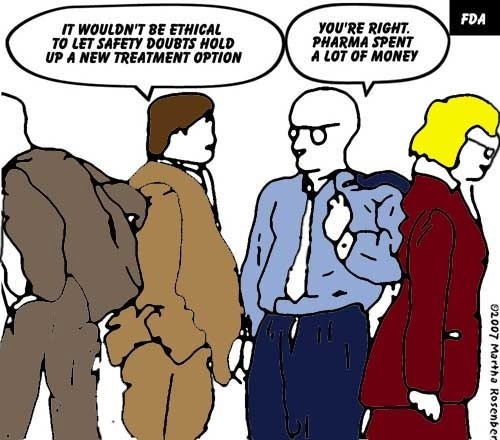The years between the debut of direct-to-consumer drug (DTC) advertising in the 1990s and passage of the Physician Financial Transparency Reports (Sunshine Act) in 2010 were a kind of “Wild West” for the drug industry.
Blockbuster drugs like Lipitor, the best selling drug in the world, Nexium the second best selling drug, Viagra and Zoloft made drug companies Wall Street darlings and entirely new classes of drugs like statins, PPIs and SSRIs household words. The public soon suffered acutely from seasonal allergies, depression, bipolar disorder, gastroesophageal reflux disease (GERD) and even risks like the threat of high cholesterol—afflictions it did not know about, worry about or believe it suffered from before DTC advertising.
Phalanxes of Hollywood-handsome drug reps stormed hospitals and medical centers with their signature Vytorin and Cialis tote bags. Because they brought lunch, gifts, smiles and free samples, some had their own room in medical offices and saw doctors before waiting patients.
Free gifts and samples were the least of the largess. Drug companies were so flush with revenues from the new blockbuster drugs and drug classes, they jetted doctors and sometimes their entire staffs to resort islands and golf vacations. For the first time anyone could remember, doctors were making more money promoting drugs to the public than they could possibly make practicing medicine itself. Some received six figure stipends and made no effort to hide the self-dealing and conflicts of interest.
In addition to doctors’ recommendations, drug safety itself was bought. The public’s shock at the withdrawal of highly promoted drugs like Vioxx, Baycol, Trovan, Meridia, Seldane, Hismanal and Darvon which had been presented as safe, was exceeded only by media reports that the drug companies knew about the risks years earlier and deliberately withheld safety information. Clinical trial information or research findings, for example, were withheld about the safety of Vioxx and Paxil and the osteonecrosis of the jaw (ONJ) side effect of bisphosphonates like Boniva and Fosamax. Also known, but hidden from the public, were the extreme weight gain associated with drugs like Zyprexa, the heightened risk of death with some asthma drugs and the likely deaths from the blood drug Xarelto which has no antidote.
The Physician Financial Transparency Reports (Sunshine Act), part of the Affordable Care Act, was designed to to reduce conflicts of interest through transparency and required disclosures—if a doctor is funded by a company that makes a drug he is recommending, the information is readily available. But two developments have made a mockery of the law which took over a decade to implement.
As bestselling pills like Lipitor, Seroquel, Zyprexa, Singular, Concerta, Cymbalta and Abilify have gone off patent, drug companies have rolled out drugs that are so expensive, they almost seem like a joke. Gilead Sciences’ hepatitis C drug, Sovaldi, costs $1000 a pill! It is reportedly sacking state Medicaid budgets through which many poor or incarcerated people receive treatment. Sanofi and Regeneron Pharmaceuticals’ new cholesterol lowering drug, Praluent, costs over $14,600 a year and the drug class is predicted to become a blockbuster class like statins were.
Gilead, Sanofi and Regeneron say their prices reflect what their drugs are “worth” to patients and the health care system, not what they cost to develop—which is a polite way of saying what they can get, also known as extortion. Generic drug makers have also gotten in to the act, charging whatever they can get.
The other risk to corruption from drug company money is the nomination of extreme drug consultant, Duke University’s Robert Califf as the new FDA commissioner.
Dr. Califf “served as a director, officer, partner, employee, advisor, consultant or trustee for Genentech,” says the medical website Medscape. A disclosure statement on the website of Duke Clinical Research Institute names more than 26 additional financial links to drug companies. Appearing on PBS, Dr. Califf told Susan Dentzer “many of us consult with the pharmaceutical industry, which I think is a very good thing. They need ideas and then the decision about what they do is really up to the person who is funding the study.” What?
If an unabashed drug company consultant who thinks funding is “a very good thing” is really made FDA commissione,r why have the Physician Financial Transparency Reports (Sunshine Act)? Why have an FDA?
Martha Rosenberg is a freelance journalist and the author of the highly acclaimed “Born With A Junk Food Deficiency: How Flaks, Quacks and Hacks Pimp The Public Health,” published by Prometheus Books. Check her Facebook page.



